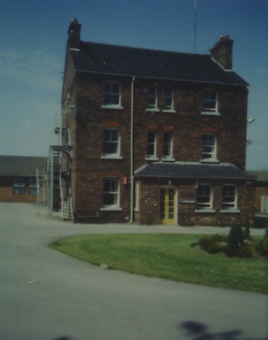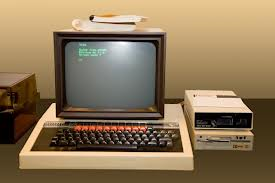You are here
- Home
- Conferences
- Conference 2014
- The role of computers in promoting independence: a forgotten history?
The role of computers in promoting independence: a forgotten history?
Professor Jane Seale, University of Exeter

In the late 1980's and early 1990's I worked in two mental handicap hospitals in Staffordshire and two Adult Training Centres in Shropshire.

My job was to use computers to help people with learning disabilities gain social and life skills such as shopping and travelling safely. This was a time when people with learning disabilities were moving out of big institutions into group homes in the community. It was also a time when many people thought that computers could be really powerful tools to help people with learning disabilities improve their independence.
Now, thirty years later, when life-story work is growing and many people with learning disabilities are talking and writing about their experiences of living in institutions, I have noticed that there are few, if any, stories about computers.
I think this is very strange and we need to ask some important questions about this:
- Have we forgotten about the role that computers played in the lives of adults with learning disabilities in the 1980's and 1990's?
- Were computers as helpful in the past as researchers thought they would be or did they have very little influence on the lives of people with learning disabilities.
- What can we learn from the history of computer use and experiences that can help us understand and develop good practices in supporting people to use technologies today?
In this presentation I will talk about why I think it is important that we try to find out about people's memories of using computers twenty or thirty years ago.
View Jane's PowerPoint presentation (PPT)
Biography
Jane Seale joined the Graduate School of Education in January 2013 as Professor of Inclusive Education. Prior to joining Exeter, she was Professor of Education at Plymouth University and Senior Lecturer at the University of Southampton.
Jane's work focuses in particular on the role that technologies play in the lives of adults with learning disabilities and the factors that influence or sustain the digital exclusion of disabled learners.
Jane has developed a national and international profile in the field through key roles such as President of the Association for Learning Technology (2006-7), Editor of the Association for Learning Technology Journal (2001-2007); Co-Chair of Ed-Media 2007 and Digital Inclusion consultant to the ESRC funded Technology Enhanced Learning (TEL) Programme.
Jane's methodological interest focuses on the development and evaluation of participatory research methods that promote voice and empowerment for disabled research partners. She was recently been awarded an ESRC Seminar Series grant focusing on examining the challenges of conducting participatory research with people with learning disabilities.
Contact us
About the Group
If you woud like to get in touch with the Social History of Learning Disability (SHLD) Research Group, please contact:
Liz Tilley
Chair of the Social History of Learning Disability (SHLD) Research Group
School of Health, Wellbeing and Social Care
Faculty of Wellbeing, Education and Language Studies
The Open University
Walton Hall
Milton Keynes
MK7 6AA
About the website
If you have any feedback or would like to report a problem with the website, please contact WELS-Research-Admin@open.ac.uk.